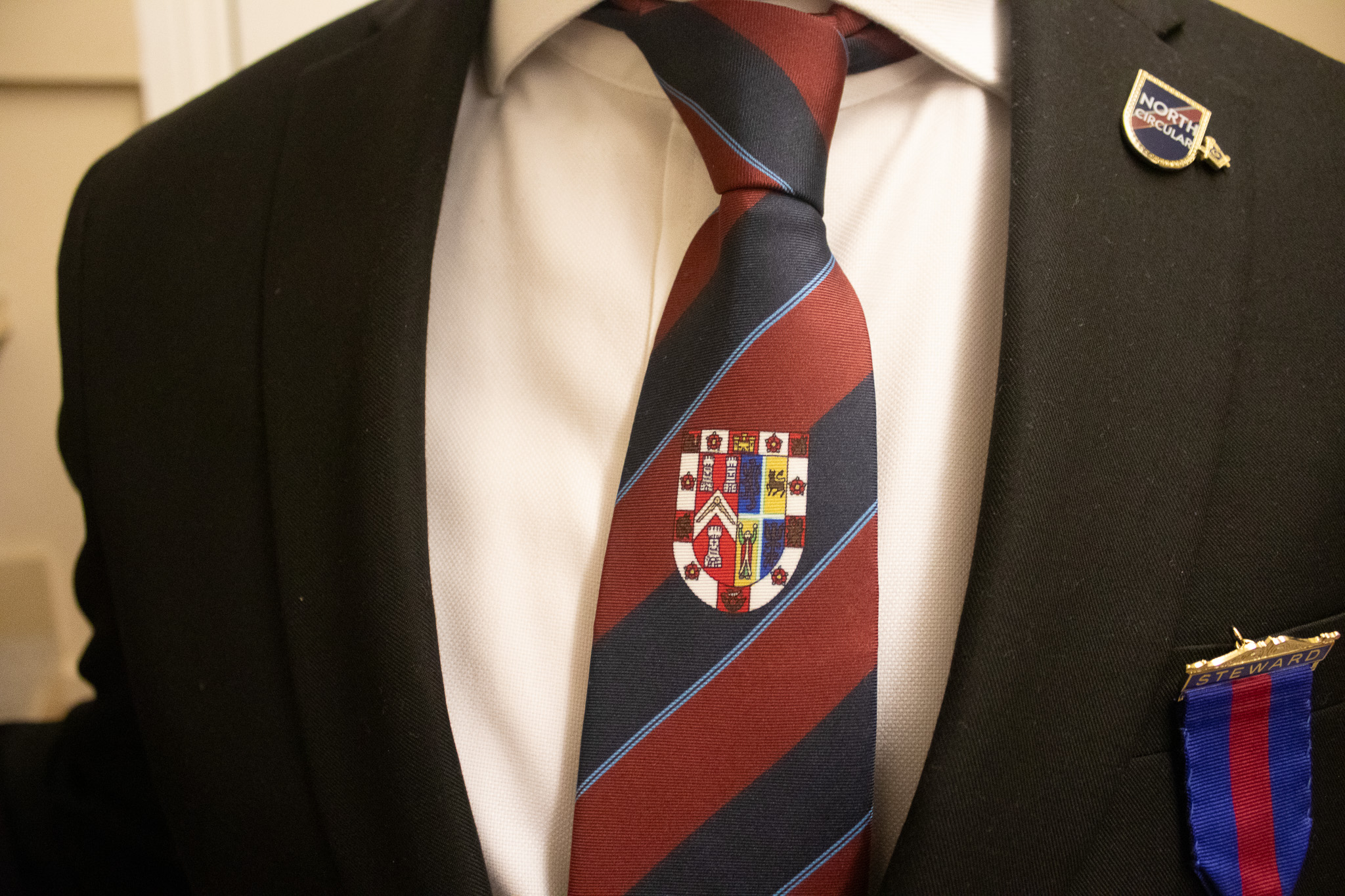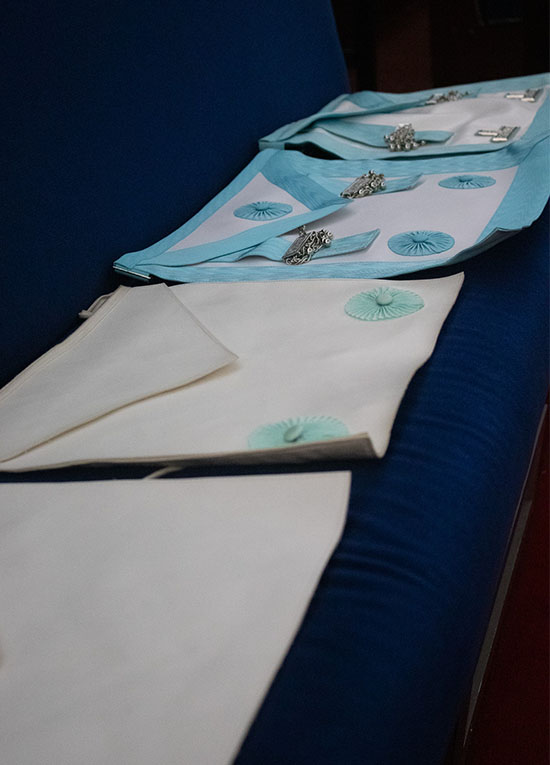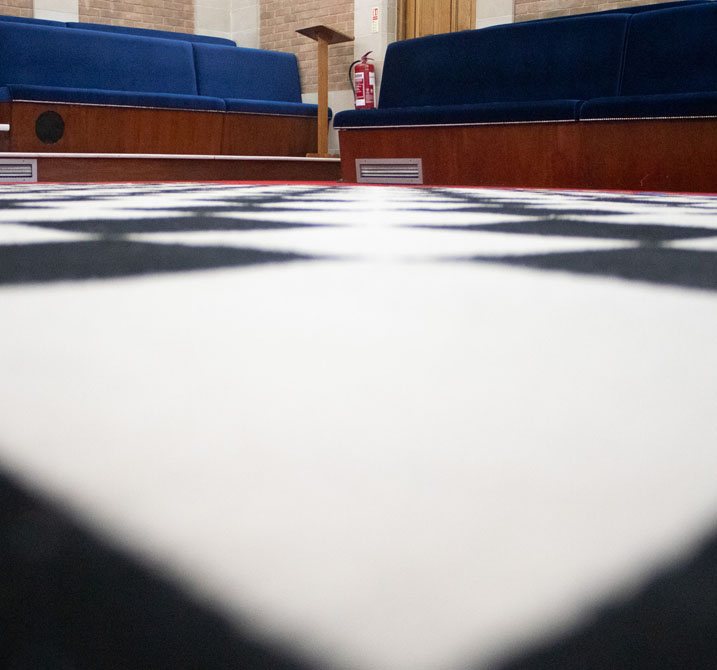Winchester Freemasons: Tradition, Symbols, and Modern Influence
Introduction Winchester Freemasons
Nestled within the historic heart of England, Winchester has long been a city of significance, not just for its architectural marvels and ancient heritage but also as a pivotal seat for one of the world’s oldest fraternal organizations: the Freemasons. The Winchester Freemasons, with their rich traditions, enigmatic symbols, and enduring influence, offer a fascinating glimpse into a society that has, over centuries, inspired curiosity, debate, and admiration.
Freemasonry, known for its secretive meetings, complex rituals, and philanthropic endeavors, has woven itself into the fabric of Winchester’s history, contributing silently yet significantly to the community and its development. This article aims to shed light on the Winchester Freemasons, exploring the depth of their traditions, the meanings behind their symbols, and their impact on the modern world. From the stone-laden paths of ancient Winchester to the modern streets bustling with activity, the presence of Freemasons has been felt, shaping the city in ways both seen and unseen. As we delve into the heart of Winchester’s Freemasonry, we uncover not just a tale of a secretive brotherhood but a story of human aspiration, community service, and the quest for understanding that transcends time itself.

Introduction to Freemasonry in Winchester
Introduction to Freemasonry in Winchester
The story of Freemasonry in Winchester is as ancient and multifaceted as the city itself. Tracing its origins back to the medieval stonemasons who built the grand cathedrals and castles of England, Freemasonry in Winchester evolved over centuries from a practical craft into a symbolic and philosophical organization. This transformation reflects a broader shift within Freemasonry, from a focus on the physical construction of buildings to the building of character, community, and spiritual ideals.
Winchester, with its rich tapestry of history, played a significant role in this evolution. The city’s significance dates back to Roman times and flourished through the Anglo-Saxon and Norman periods, accumulating layers of history and mystery. It’s within this backdrop that Freemasonry found a fertile ground, with its first recorded lodge in Winchester, the “Lodge of Economy,” established in the early 18th century. This lodge, like many early Masonic lodges, served as a meeting point for enlightened discussion, charitable work, and the exploration of Masonic principles.
The Freemasons of Winchester were, and continue to be, integral to the city’s social fabric. They contributed to local charities, participated in public events, and provided assistance to the community in times of need. Their commitment to philanthropy is rooted in the Masonic principles of brotherly love, relief, and truth, which guide their actions both within the lodge and in the broader community.
The traditions of the Winchester Freemasons are a testament to the enduring legacy of Freemasonry’s ideals. These traditions are evident in the rituals and ceremonies that have been preserved over centuries, adapted over time to remain relevant while staying true to the core Masonic values. These ceremonies, rich in symbolism and allegory, offer a bridge between the past and present, allowing members to connect with the foundational principles of Freemasonry while navigating the challenges of the modern world.
In addition to their ceremonial practices, the Freemasons of Winchester have maintained a strong tradition of secrecy and discretion. This secrecy, often misunderstood by those outside the organization, serves to create a bond among members and preserve the sanctity of their rituals and symbols. It is within this confidential space that Freemasons can engage in introspection, moral reflection, and the pursuit of spiritual growth.
As we delve deeper into the world of Winchester Freemasons, it becomes clear that their story is not just one of secrecy and ceremony but also of significant contributions to the community and steadfast adherence to timeless values. Their history is a mirror to the broader narrative of Freemasonry, reflecting the challenges, changes, and continuities of this ancient fraternity.
Traditions and Ceremonies of Winchester Freemasons
The traditions and ceremonies of the Winchester Freemasons serve as a core pillar of their identity, weaving a rich tapestry of ritual and symbolism that stretches back centuries. These practices, steeped in history and mystique, provide not only a connection to the past but also a pathway for personal and collective growth within the fraternity.
Centuries-Old Rituals Preserved and Adapted
At the heart of Winchester Freemasonry are the rituals performed within the lodge. These ceremonies, which include rites of initiation, progression, and instruction, are meticulously structured and laden with symbolic meaning. They draw from a well of ancient wisdom, incorporating elements of biblical allegory, architectural symbolism, and age-old moral teachings. These rituals serve a dual purpose: they are a means of conveying Masonic principles and a medium for the spiritual and moral development of members.
Symbolism: A Language of the Soul
The use of symbols is integral to Masonic tradition, and in Winchester, this language of symbols speaks volumes about the fraternity’s beliefs and values. The square and compass, perhaps the most recognized Masonic symbols, represent the virtues of morality and the boundaries of conduct within which a Mason should confine himself. The all-seeing eye, another pervasive symbol, signifies the divine watchfulness over humanity and the Mason’s duty to live a life of integrity under the gaze of a higher power.
Passing Down Traditions: The Role of Mentorship
Mentorship plays a crucial role in the transmission of Masonic traditions and knowledge in Winchester. More experienced Freemasons guide newer members through the complexities of Masonic rituals and symbolism, fostering a sense of brotherhood and continuity. This mentorship ensures that the rich heritage of Freemasonry is preserved and passed down through generations, adapting as necessary to remain relevant in a changing world.
Community Service and Charitable Works
Beyond the ceremonial aspect, the traditions of the Winchester Freemasons extend into their commitment to community service and charity. Freemasonry espouses the principles of brotherly love, relief, and truth, and these values manifest in the fraternity’s charitable initiatives. From supporting local charities to providing scholarships and engaging in community improvement projects, the Freemasons of Winchester translate their moral and ethical principles into concrete actions that benefit the wider community.
The Living Tradition: Adapting to Modern Times
While rooted in history, the traditions of Winchester Freemasons are not static; they evolve in response to the changing needs and perspectives of society. This dynamic approach ensures that Freemasonry remains a relevant and vibrant force in the lives of its members and in the community at large. By balancing reverence for their rich heritage with openness to change, the Winchester Freemasons continue to uphold their traditions as a living, breathing aspect of their fraternity.
Modern Influence and Contributions
The Winchester Freemasons’ influence extends far beyond the confines of their lodges, reaching deep into the heart of the community through a variety of modern contributions and initiatives. In today’s society, where the needs are ever-evolving, the Freemasons of Winchester have adeptly balanced their time-honored traditions with a proactive approach to community service and social welfare.
Philanthropy at the Core
Philanthropy remains a cornerstone of Freemasonry, with the Winchester lodges actively involved in charitable work that benefits local, national, and international causes. From fundraising for local hospitals and schools to supporting disaster relief efforts around the globe, the Freemasons demonstrate a commitment to altruism and the welfare of others. These acts of charity are not just financial; they involve hands-on participation and personal engagement, embodying the Masonic principles of brotherly love and relief.
Education and Scholarships
Understanding the value of education in empowering individuals and communities, the Winchester Freemasons place a strong emphasis on educational initiatives. This includes providing scholarships and bursaries to students, funding educational programs, and supporting schools and libraries. Through these efforts, the Freemasons aim to foster a love of learning, critical thinking, and personal development among the youth of Winchester and beyond.
Community Engagement and Improvement
The Freemasons’ influence is also evident in their efforts to engage with and improve the local community. This includes participating in community clean-up projects, supporting local arts and culture, and contributing to the preservation of Winchester’s historic sites and monuments. By investing their time and resources in these projects, the Freemasons help to enhance the quality of life in Winchester, ensuring the city remains a vibrant and welcoming place for all its residents.
Supporting Public Services
In addition to their charitable and educational initiatives, the Winchester Freemasons offer support to public services, including the police, fire services, and healthcare providers. Whether through donations of equipment, volunteering, or raising awareness of critical issues, the Freemasons stand as a pillar of support for those who work tirelessly to keep the community safe and healthy.
A Legacy of Positive Impact
The modern contributions of the Winchester Freemasons underscore their enduring legacy of positive impact within the community. By aligning their traditional values with the needs of contemporary society, the Freemasons have demonstrated that their organization remains a relevant and dynamic force for good. Through their philanthropic efforts, educational support, community engagement, and backing of public services, the Freemasons of Winchester continue to build bridges, foster unity, and make a meaningful difference in the lives of many.
Challenges and the Future of Freemasonry in Winchester
In the heart of Winchester, the Freemasons face a future that is as uncertain as it is filled with potential. As society evolves at an ever-accelerating pace, the Freemasons in this historic city are confronted with challenges that test their ability to adapt while staying true to their ancient principles and traditions.
Navigating Societal Changes
One of the foremost challenges facing the Winchester Freemasons is the rapid transformation of society, driven by technological advancements and shifting cultural norms. The digital age has brought about a new era of communication and social interaction, raising questions about the relevance of traditional meeting spaces and practices. Freemasonry, with its emphasis on face-to-face fellowship and ritual, must find ways to integrate modern communication methods without losing the essence of its communal experience.
Perception and Membership
Another significant challenge is the changing perception of Freemasonry in the public eye. Once shrouded in mystery and intrigue, Freemasonry must now navigate a world where transparency and openness are valued above secrecy and exclusivity. This shift poses questions about how to attract new members who seek meaningful engagement and community involvement but may be wary of joining an organization perceived as opaque or outdated.
Adapting to the Needs of the New Generation
The Freemasons of Winchester are also tasked with adapting their practices and values to meet the expectations of a younger generation. This includes addressing issues of diversity, equality, and inclusivity, ensuring that Freemasonry remains a welcoming and relevant institution for individuals from all walks of life. Embracing these values not only strengthens the fraternity internally but also enhances its role and image within the broader community.
Preserving Tradition While Fostering Innovation
Balancing the preservation of tradition with the necessity for innovation is perhaps the most delicate challenge. The rituals, symbols, and ceremonies that define Freemasonry are timeless, yet there is an ongoing need to ensure these traditions are accessible and meaningful to contemporary society. This balance requires a thoughtful approach, one that honors the past while embracing the future, ensuring that the core values of Freemasonry continue to inspire and guide its members.
The Road Ahead
Looking to the future, the Winchester Freemasons stand at a crossroads of tradition and transformation. By addressing these challenges with openness, adaptability, and a steadfast commitment to their principles, they can navigate the complexities of the modern world. The future of Freemasonry in Winchester is not just about survival but about thriving, leveraging the strength of its heritage to make a positive impact in the lives of its members and the community at large.
Conclusion
As we conclude our exploration of the Winchester Freemasons, it’s evident that this venerable fraternity is much more than a relic of the past. Through centuries of change, the Freemasons of Winchester have maintained their commitment to tradition, brotherhood, and community service, all while adapting to the evolving needs of modern society. The challenges they face today are but the latest in a long history of adaptation and perseverance, proving that the core values of Freemasonry remain as relevant and impactful as ever.
The Freemasons’ enduring legacy in Winchester is a testament to their ability to balance the preservation of ancient rituals and symbols with a proactive approach to contemporary issues. Their contributions to the community, whether through philanthropy, education, or civic engagement, reflect a deep-rooted belief in the power of collective action and moral integrity.
As we look to the future, the Freemasons of Winchester stand at a crossroads between tradition and innovation. The path they choose will undoubtedly be guided by the same principles that have defined Freemasonry for centuries, ensuring that their influence will continue to be felt in Winchester and beyond. The story of the Winchester Freemasons is far from complete; it is an ongoing journey of growth, adaptation, and service, contributing to a legacy that will endure for generations to come.



